Search Results
Showing results 1 to 20 of 62

Cleaning with Dirt
Source Institutions
Learners build a filter from old soda bottles and dirt. They create polluted water, and pour it through their filter to clean it.
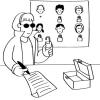
Public Key Encryption: Kid Krypto
Source Institutions
In this activity, learners conduct a simulation exercise related to public key encryption and try to intercept a message sent between two learners.

Battleships: Searching Algorithms
Source Institutions
This activity explores the main algorithms that are used as the basis for searching on computers, using different variations on the game of battleships.
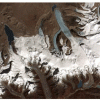
Earth's Energy Cycle: Albedo
Source Institutions
In this activity, learners experiment and observe how the color of materials that cover the Earth affects the amounts of sunlight our planet absorbs.

Cosmic Debate
Source Institutions
In this activity described on pages 2-3 of the PDF, participants debate whether there there's life elsewhere in the universe.
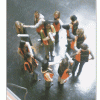
Running in Circles
Source Institutions
In this group activity, learners use some common objects and work together to simulate the Coriolis effect. During the challenge, learners make predictions and test different scenarios.
Pollution and Lung Health
Source Institutions
Learners will build a lung model to understand how their lungs and diaphragm work to make them breathe.
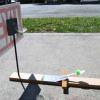
Parabola Basketball
Source Institutions
In this activity, learners build mini-basketball courts and explore the laws of physics. Learners discover that everything you throw or shoot on earth travels in a parabola.
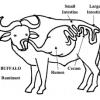
Ruminating on the Digestive System
Source Institutions
In this activity, learners will review the functions of basic digestive organs, understand how diet affects digestion, understand how digestive tracks may differ, and then step outside to compare the

Exploring Strange New Worlds
Source Institutions
This fun and simple hands-on astronomy activity lets learners explore model planets (that they or an educator will create), using methods NASA scientists use to explore our Solar System.

Envirolopes
Source Institutions
In this outdoor activity and observation game, learners hunt for a variety of textures, colors, odors and evidence of organisms in the activity site.
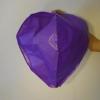
Hot Air Balloon
Source Institutions
In this activity, learners build a hot air balloon using just a few sheets of tissue paper and a hair dryer.

The Poor Cartographer: Graph Coloring
Source Institutions
In this activity, learners help a poor cartographer color in the countries on a map, making sure each country is colored a different color than any of its neighbors.

Divide and Conquer: Santa's Dirty Socks
Source Institutions
This activity introduces the idea of "divide and conquer" using a fictitious but serious problem--a pair of dirty socks has accidentally been wrapped in one of the presents that Santa is about to deli

Dogs and Turnips
Source Institutions
Learners turn over a random selection of cards from a larger set. From the words revealed, they try to determine the sentence represented on the larger set of cards.
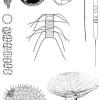
The Great Plankton Race
Source Institutions
In this activity, learners are challenged to design a planktonic organism that will neither float like a cork nor sink like a stone.
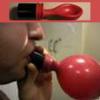
Under Pressure: Your Blood Pressure
Source Institutions
During this lesson, learners will determine their blood pressure and learn about systolic and diastolic pressures.

Pathways with Friends
Source Institutions
Directed by instructional cards, learners kinesthetically model cell communication by acting as components in a cell signaling pathway.
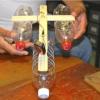
Speedboat
Source Institutions
In this activity, learners build a speedboat using paint paddles, a propeller, and film canister. Learners attach a simple circuit and motor to the boat to power the propellers.
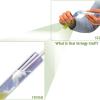
How to Extract DNA From Anything Living
Source Institutions
In this genetics activity, learners discover how to extract DNA from green split peas.
